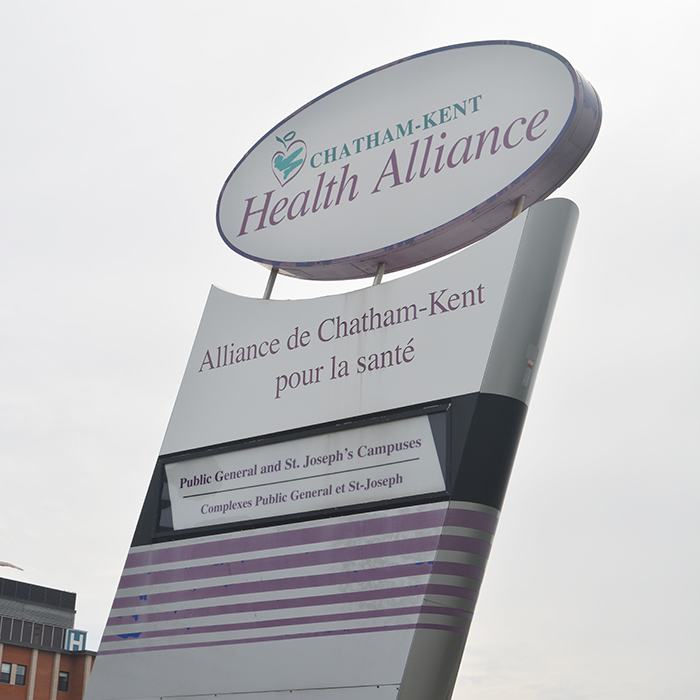
More than a year has passed since the province appointed Rob Devitt to supervise the restructuring of the Chatham-Kent Health Alliance, and CKHA officials say the difference between now and then is huge.
“We’ve started to turn the corner on many things,” president and CEO Lori Marshall said at a press conference Sept. 14.
Last year, Bonnie Adamson, appointed by the Ministry of Health and Long-Term Care to investigate the overall dysfunction between the hospital boards as well as the day-to-day operations at the facilities, found a slew of issues.
Devitt was appointed in late summer of 2016 and started cleaning house. Top administrators were let go and reorganization began.
Today, the current administration is committed to operating two hospitals, Chatham and Wallaceburg, with two 24/7 emergency departments. The previous administration had looked to eliminate the Sydenham District Campus ER.
Hospital administrators reiterated the commitment to two emergency departments.
“It makes sense long term,” Jerome Quenneville, vice-president and chief financial officer, said. “You need the doctors to make it happen and we have it.”
Changes in doctor scheduling in the Chatham ER appears to be paying off. Marshall said in July, for the first time in three years, the hospital ranked in the top third – 24th – of 73 Ontario hospitals in terms of performance and wait times.
“It’s a major change as a result of the physicians changing their hours,” she said. “We’re definitely seeing a very positive trend.”
In March, the alliance placed 54th on the same list.
Marshall said the alliance has been able to add about six hours of physician time in the department each day and cut wait times.
Financially, an organization that seemed to be annually anchored with spending that outstripped provincial funding is on track to post its second straight balanced budget, Marshall said.
The first position of balance came at the end of this past March, and hospital administration said the numbers so far into this fiscal year indicate they will be able to repeat that feat.
“To the end of July, there was almost a one-per-cent surplus,” Quenneville said. “We’re holding our own and we’re hopeful we’ll balance the books for the year.”
That will leave the organization in a position to offer buyouts to a number of staff. Previously, the alliance identified a need to trim 41 positions, 26 full-time and 15 part-time jobs, culling staffing to better reflect need.
Through attrition, 28 of those positions are already accounted for, Marshall said, and she remained confident no one will be laid off as a result of the reductions.
Alliance officials don’t anticipate any major changes in spending at their hospitals, but would like to add a satellite dialysis unit to the Sydenham Campus. Quenneville said provincial support would be required to make that a reality.
As well, Marshall said ambulatory care in Wallaceburg will be undergoing an expansion.
The Rural Health Advisory Committee, a body that will scrutinize how people in Chatham-Kent access health care here, is established. Its membership is comprised of members of the general public, the family health teams, CKHA staff and First Nation peoples.
Marshall said the alliance has also just introduced a new familial relations policy, a protection from nepotism.
“We’ve identified who are immediate family members,” she said. “They would not be in a supervisory role with another family member.”
One major area with a remaining black hole is at the top – governance. This was where the dysfunction took place, as the three hospital boards began to feud, and the tri-board meetings were suspended for months before Adamson stepped in.
Marshall said Devitt is still examining options.
“We’re still in the process of reviewing best practices in terms of governance,” she said. “It’s definitely Rob’s top priority at this stage.”
Devitt, who was not present at the meeting, said previously he anticipates being needed until the end of the year with the CKHA, with the final focus being the governance model.
“Local governance is so important. The goal is to have a highly functioning team with a board that’s providing high-level oversight,” he said.






